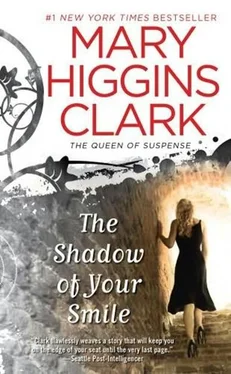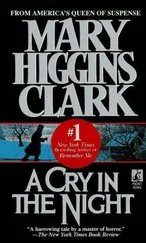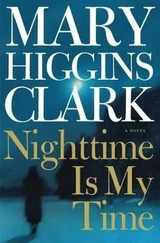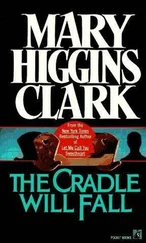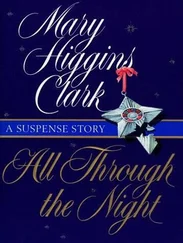Out of curiosity Esther had googled him. After the recent death of his mother, Saling had come into the principal of a family trust, close to one hundred million dollars.
The door was closed, but she could hear Greg’s booming jovial tones even though the words were muffled. Then for a long time she could not hear a sound from his office. Which means, she decided, that now he’s oozing charm and giving Saling his confidential pitch. She knew it by heart: “I’ve been following this stock for four years and its time has come. The company is about to be bought out, and you can imagine what that means. It’s the best opportunity in the market since Google went public.”
Poor Arthur Saling, she thought. If Greg is frantic to cover his losses, a lot of these paper profits he’s been posting probably don’t even exist, and this is one more victim in the making. I wish I could tip him off.
When the call to Saling ended, Greg got back on the intercom. “That turned out to be a good morning’s work, Esther,” he said, his voice warm and relieved now. “I think we’ll hold the other calls until this afternoon. My wife is joining me for lunch and I should be on my way.”
“Of course.” I wish I was out of here, Esther thought, as the clock on her desk registered the noon hour. Not just for lunch, but out of here altogether. It makes me feel slimy to be reporting on Greg to the SEC, even though he might have just convinced someone else to trust him with his money.
Greg was still at his desk when Pamela Gannon swept in at quarter past twelve. “Is anyone with him?” she asked Esther.
“No, Mrs. Gannon,” Esther said, trying to force a friendly note into her voice. I’ve got to admit that woman is beautiful, she conceded, as Pamela strode past her desk, stunning in a fur-trimmed red suit and suede boots. But her kind marries people like Greg Gannon for one reason only, a five-letter word spelled m-o-n-e-y.
She watched as Pamela, without knocking, turned the handle of Greg’s door and flung it open. “Surprise, I’m here, Papa Bear,” she called. “I know I’m early but I couldn’t wait ’til one o’clock to meet you at Le Cirque. I’m sorry I wasn’t awake before you left this morning. I wanted to wish you a happy tenth anniversary of the wonderful day we met.”
Papa Bear! God spare me, Esther thought, shuddering at Greg’s delighted response.
“I’ve been thinking about it every minute,” Greg was saying, “and I’ve had such a good morning that I planned to stop at Van Cleef and Arpels before I met you for lunch. But now you can go with me and help me pick out something really special.”
How about a tiara? Esther asked herself as they passed her desk, ignoring her. They’re going out to buy pricey jewelry on the poor guy who’s probably just committed a fortune for Greg to handle.
It’s not going to happen, she told herself. On her way to have lunch, Esther stopped at a CVS pharmacy and bought plain paper and a plain envelope. In block letters she wrote, “THIS IS A WARNING. DO NOT INVEST WITH GREG GANNON. YOU WILL LOSE YOUR MONEY.” She signed it, “A friend,” then put a stamp on the envelope, addressed it, and took a cab to the main post office, where she dropped it in a mailbox.

For hours Monica did not leave the side of Sally’s crib after she managed to resuscitate her. The baby’s lungs kept filling with fluid and she continued to burn with fever. Finally Monica lowered the side of the crib and, leaning in, cradled Sally in her arms. “Come on, little girl,” she whispered. “You’ve got to make it.” The thought of what the Monsignor had told her about Sister Catherine praying over sick children ran through her head.
Sister Catherine, she thought, I don’t believe in miracles, but I know so many believe you saved lives, not only terminal kids like Michael O’Keefe, but other kids who were at death’s door. Sally has had such a rotten break. A mother who neglects her, and no father around. She’s wrapped herself around my heart. If she lives, I promise I’ll take care of her.
It was a long afternoon but at seven o’clock she felt that it was safe to go. Sally’s fever had gone down and even though she still had an oxygen mask clamped around her face, her breathing had eased. “Call me if there’s any change,” Monica told the nurse.
“I will, Doctor. I didn’t think we were going to be able to save her.”
“Neither did I.” With an attempt at a smile, Monica left the pediatrics floor and the hospital. The temperature had dropped but as she buttoned her coat she decided to walk to the office. I’ll check on my messages, she thought, and see how much Nan has been able to rearrange my appointments. I’ll walk over. It will feel good to clear my head.
Her shoulder bag in place, she put both hands in her pockets and at her usual rapid pace began to walk east across Fourteenth Street. Now that she felt reasonably secure about Sally, her thoughts reverted to the crushing disappointment of finding Olivia Morrow dead. In her mind she could see every detail of Morrow’s face, the gaunt thinness of her features, the gray pallor of her skin, the wrinkles around her eyes, her teeth clamped on the corner of her lower lip.
She must have been an exquisitely neat person, Monica thought. Everything was in perfect order. The apartment was furnished in such good taste. Either she died right after she went to bed, or else she certainly couldn’t have been a restless sleeper. The top sheet and comforter weren’t wrinkled at all. Even the pillow her head was resting on looked brand new.
The pillow. It was pink and the sheets and the other pillows were peach. That’s what I noticed, Monica thought. But what difference does it make? None. The only hope I have now is to ask Dr. Hadley if he can give me a list of her friends. Maybe she talked to one of them about me.
She was at the busy corner of Union Square and Broadway by a crowded bus stop. The light was changing from yellow to red and she watched in disapproval as a number of people darted across the street as the oncoming traffic rushed at them. A bus was approaching the bus stop when she suddenly felt a violent push and tumbled over the curb onto the street. As onlookers shouted and screamed, Monica managed to roll out of the way of the bus, but not before it had run over and crushed the shoulder bag that had been thrown from her arm.

Peter Gannon looked across the table at his former wife, Susan. He had asked her to have dinner with him at Il Tinello, which had always been one of their favorite restaurants during their twenty-year marriage. They had not spoken or met in the four years since their divorce until he received the phone call from her saying how sorry she was that his new play had closed.
Now, desperate for help, he looked across the table at her: Forty-six years old, her wavy hair streaked with silver, her face dominated by her wide hazel eyes. He wondered how he had ever let her go. I was never smart enough to realize how much I loved her, he thought, and how good she was to me.
Mario, the owner, had greeted them by saying, “Welcome home.” Now, after the bottle of wine he had ordered was served, Peter said, “I know it sounds corny, but being here with you at this table feels like being home, Sue.”
Her smile was wry. “That depends on how you interpret the word ‘home.’ ”
Peter flinched. “I’ve forgotten how direct you are.”
“Try to remember.” Her light tone took the sting out of the rebuke. “We haven’t talked in ages, Peter. How is your love life? I assume robust, to put it mildly.”
Читать дальше
